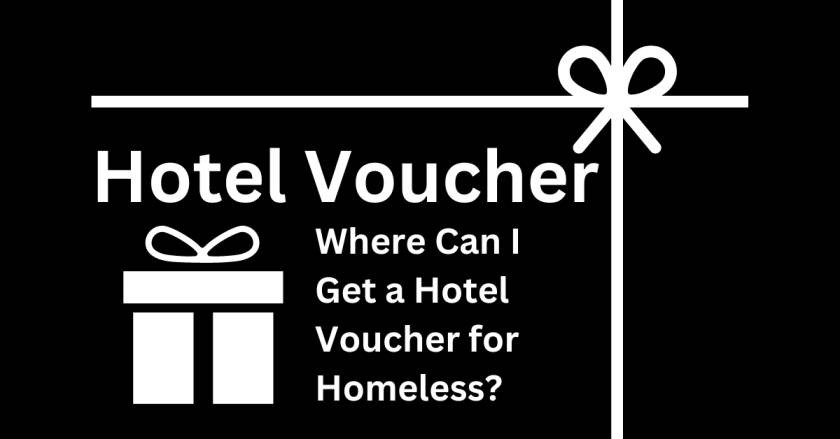Homelessness is a complex social challenge. In many communities, emergency shelter capacity is limited, especially during extreme weather events or crises. One tool used by some jurisdictions and nonprofit organizations is hotel (or motel) vouchers: short-term subsidies that allow homeless individuals or families to temporarily stay in a hotel or motel room while more stable housing solutions are arranged. These vouchers can serve as a bridge to safety, helping people avoid nights of homelessness and giving case managers time to find more lasting accommodations.
In St. Louis and surrounding counties, efforts (and opportunities) to utilize these vouchers are underway, although their implementation faces limitations. This article examines how voucher programs currently operate (or could operate), where they are used locally, the challenges they face, and how they could be strengthened.
How Hotel Voucher Programs Work
A hotel/motel voucher program typically includes the following:
Referral and Assessment
A social services agency, outreach team, or emergency shelter identifies an individual or family who cannot be immediately placed in a shelter. The individual’s eligibility (income, vulnerability, homelessness, etc.) is assessed.
Voucher Issuance/Payment
The service provider signs a contract or agreement with local motels/hotels. The voucher covers (in full or in part) the cost of the room for a limited number of nights. The provider pays the hotel directly or reimburses the client.
Case Management and Support
While the client is staying at the hotel, case management services are provided: assistance with finding housing, applying for benefits, mental health/substance use support, job referrals, etc.
Exit/Transition Strategy
The stay is time-limited (e.g., 2 to 14 nights or more, depending on resources), after which the client must move to more stable accommodations (shelter, transitional housing, permanent subsidized housing, etc.). Voucher programs are typically funded through a combination of local, state, federal, and philanthropic funds. They are sometimes referred to as bridge housing, alternative housing, or emergency motel programs.
Local Resources and Programs That Offer or Can Help with Vouchers
Below are organizations and programs in the St. Louis area that offer or coordinate hotel voucher assistance, or that may be able to refer you:
City of St. Louis — Bridge Housing / ARPA “Bridge Housing”
Offers short-term housing subsidies (including 1 to 3 months of hotel stay), plus case management, assistance with utilities/rent, security deposits, and moving expenses.
Contact the city’s recovery/human services/homelessness division to learn about eligibility and apply for assistance.
Pathways to Housing (Diamond Diva Empowerment Foundation)
Offers emergency hotel vouchers to survivors of intimate partner violence, along with other support.
Call 314-328-4348 or the domestic violence hotline (1-800-799-7233).
Catholic Urban Programs / Holy Angels Shelter and Housing Services
When the shelter is full, they offer emergency motel nights and a voucher program to keep families together while they search for permanent housing.
Contact Catholic Urban Programs, especially its Human Services Office.
St. Louis Homeless Services / Continuum of Care (City of St. Louis)
The City’s Homeless Services Division coordinates the homeless response system, including contracts with service providers who may implement voucher programs.
Contact Homeless Services: phone (314) 657-1704; or the St. Louis Housing Helpline: (314) 802-5444.
St. Louis County Supportive Housing Hotline / Emergency Shelter
For people in unincorporated areas, the county’s human services division can coordinate housing or refer them to motel voucher programs.
Use the Emergency Shelter Hotline at (314) 802-5444 (the same number used for many regional referrals).
Other Shelters and Emergency/Seasonal Programs
Some shelters, faith groups, or interfaith networks have motel voucher funds for emergencies during extreme weather conditions or when shelters are full. Consult local shelter referral networks (through 2-1-1 or the United Way).
Call 2-1-1 (United Way/local referral hotline) for help finding motel voucher programs available in your zip code.
Advantages and Benefits of Hotel Voucher Programs
Rapid Safety for High-Risk Individuals: In extreme weather conditions (hot or cold), vouchers allow for rapid escape from outdoor conditions.
Flexibility When Shelter Capacity is Limited: Shelters may be full or some people may not accept congregate shelter; Vouchers offer alternatives.
Time for Stabilization: The stay allows case managers to interact with clients, assess their needs, and create a path to more stable housing.
Preservation of Family Units: Vouchers allow families (including children) to remain together, rather than being separated in different shelters.
Reducing Pressure on Shelter Systems: By diverting some demand to hotel stays, shelters can be reserved for those who cannot otherwise be accommodated.
Challenges and Limitations
Implementing hotel voucher programs is not easy. Some of the key challenges in the St. Louis context include:
Funding Constraints
Hotel vouchers are expensive. Staying even a few nights in a motel can be costly, especially in urban areas. Grant funding (federal, state, and local) is often limited and may not meet demand.
Hotel / Motel cooperation
Agencies must negotiate rates with participating motels. Some motels may decline due to perceived risks (damage, non-payment) or stigma. Ensuring safe, quality rooms is also a challenge.
Time-limited Stays
There should be strict limits on voucher nights to prevent indefinite stays; however, if the time limit is too short, users may not achieve timely stabilization or transition, potentially leading to a return to homelessness.
Case Management Capacity
Voucher stays are only effective if complemented by services. If agencies lack sufficient staffing or coordination, voucher users may not receive the support they need to move into stable housing.
Geographic Limitations
In large metropolitan areas, motels may be spread out, making transportation difficult. Users may end up in remote motels without easy access to services, public transportation, or job opportunities.
Coordination with the Homeless System
The program should be integrated with coordinated intake systems, shelter referral systems, and the broader Continuum of Care to avoid duplication or leakage. Eligibility and Equity
Deciding who qualifies (e.g., severity of vulnerability, duration of homelessness, families vs. individuals, behavioral criteria) can be politically and ethically controversial.
Sustainability and Evaluation
Programs require ongoing monitoring: outcome measurement (did the voucher recipients successfully transition to housing?), cost tracking, and design adjustments as needed.
Conclusion
Hotel or motel voucher programs are not a silver bullet for homelessness, but they can be a powerful complementary tool. In St. Louis, there are already promising examples (e.g., bridge housing, domestic violence programs) that demonstrate how vouchers can help when shelter capacity is limited. Expanding and refining these efforts, supported by stable funding, strong partnerships, and comprehensive case management, can offer greater humanity, safety, and access to those experiencing homelessness in and around San Luis.



